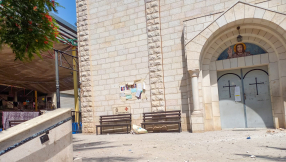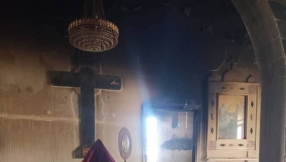World Church Leaders Focus on Reconciliation & Changing Ecumenical Landscape
|PIC1|Bishop Mvume Dandala, general secretary of All Africa Council of Churches, presented a strong challenge to thousands of Methodists on the third day of the 19th World Methodist Conference to make reconciliation a priority. But he reminded the Wesleyan followers that everyone has “different stories” and those differences must be affirmed for reconciliation to take place.
“One of the biggest dangers that makes reconciliation difficult is when a person looks at his/her lifestyle and assumes that reconciliation will happen only as people become like him/her,” Dandala further explained. “People are diverse.”
Diversity was addressed at a seminar on Ecumenics and Dialogue later that day when religious officials representing several ecumenical bodies broke down denominational lines and spoke on a common platform.
“The ecumenical landscape is changing,” declared Dr. Ishmael Noko, general secretary of the Lutheran World Federation.
Noko spoke a day ahead of the historic ecumenical service where Methodists will officiate their signature to the Joint Declaration on the Doctrine of Justification – an agreement signed in 1999 between the Lutheran World Federation and the Roman Catholic Church.
“It is not a new confession but an agreement that gives us the ability on how to address remaining questions from a new perspective,” said Noko.
|PIC2|It is not just a bilateral agreement for the two world bodies, but it’s the shared biblical faith of the universal church. Thus, the Methodists joining as a third partner is a timely move in the context of an ecumenical framework.
“It makes a lot of sense that Methodists come in,” affirmed Noko to a room full of Methodists.
Cardinal Walter Kasper, president of the Pontifical Council for Promoting Christian Unity, was also present at the Ecumenics seminar and was all smiles for the ecumenical partnership.
As the Rev. Dr. Samuel Kobia, general secretary of the World Council of Churches, told the Methodists, “This is all about dialogue.” Also a Methodist, Kobia represents a world body that brings together more than 340 churches from across denominations.
“We have openly invited other Christian world communions to associate themselves with the process of the joint declaration because the subject which we are talking about is not property of one or two church bodies,” said Noko. “It’s for all churches.”
Lillian Kwon
Christian Today Correspondent













